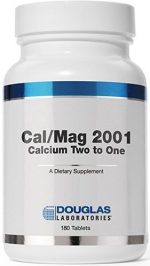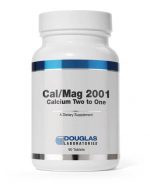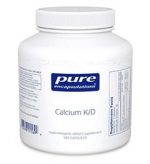
FREE SHIPPING TO U.S. AND PUERTO RICO FOR ALL ORDERS $100 AND OVER!
We are unable to accept returns on any products or test kits. All sales are final.
By visiting our site, you agree to our privacy policy regarding cookies, tracking statistics, etc. Read more
FREE SHIPPING TO U.S. AND PUERTO RICO FOR ALL ORDERS $100 AND OVER!
We are unable to accept returns on any products or test kits. All sales are final.
FREE SHIPPING TO U.S. AND PUERTO RICO FOR ALL ORDERS $100 AND OVER!
We do not currently ship internationally.
Low levels of calcium can cause the following symptoms: numbness and tingling in the fingers, muscle cramps, convulsions, lethargy, poor appetite, and abnormal heart rhythms. If left untreated, calcium deficiency leads to death.
Over the long term, inadequate calcium intake causes osteopenia which, if untreated, can lead to osteoporosis. The risk of bone fractures also increases, especially in older individuals. Calcium deficiency can also cause rickets, though it is more commonly associated with vitamin D deficiency.
Magnesium is needed for more than 300 biochemical reactions in the body. It helps maintain normal muscle and nerve function, keeps heart rhythm steady, supports a healthy immune system, and keeps bones strong. Magnesium also helps regulate blood sugar levels, promotes normal blood pressure, and is known to be involved in energy metabolism and protein synthesis. There is an increased interest in the role of magnesium in preventing and managing disorders such as hypertension, cardiovascular disease, and diabetes. Dietary magnesium is absorbed in the small intestines. Magnesium is excreted through the kidney.
Signs of magnesium deficiency include loss of appetite, nausea, vomiting, fatigue, and weakness. As magnesium deficiency worsens, numbness, tingling, muscle contractions and cramps, seizures (sudden changes in behaviors caused by excessive electrical activity in the brain), personality changes, abnormal heart rhythms, and coronary spasms can occur. Severe magnesium deficiency can result in low levels of calcium in the blood (hypocalcemia). Magnesium deficiency is also associated with low levels of potassium in the blood (hypokalemia).
Showing 1–24 of 50 results
























This site is protected by reCAPTCHA and the Google Privacy Policy and Terms of Service apply.